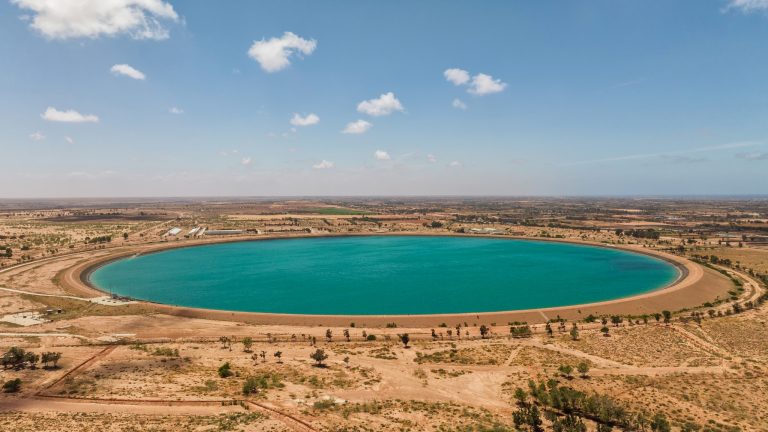At Qabas, we understand that effective risk mitigation and management in Libya is essential for navigating our nation’s dynamic landscape. As the leading Libya-based service provider in this field, we’re dedicated to protecting your business with tailored and strategic solutions.
Our team of experts combines local insights with global best practices to deliver innovative approaches that set industry benchmarks. We prioritize excellence and reliability, ensuring your operations stay resilient and your goals within reach.
Partner with us to experience unparalleled expertise in risk management, as we commit to safeguarding your interests and driving your success in Libya’s evolving environment.
Table of Contents
![#1 Risk Mitigation and Management in Libya [FREE Consultation] 1 1 Risk Mitigation Management in Libya FREE Consultation](https://qbs.ly/wp-content/uploads/2024/12/1-Risk-Mitigation-Management-in-Libya-FREE-Consultation-1024x575.jpg)
Overview of Risk Mitigation and Management in Libya
Libya’s risk landscape encompasses both conflict and climate-related challenges that require strategic mitigation and management. Our deep understanding of these risks enables us to develop effective solutions tailored to the unique Libyan context.
Conflict Risk
Libya’s prolonged history of conflict, marked by civil wars since 2011, foreign interventions, and ongoing factional power struggles, contributes to significant vulnerability. Despite the 2020 ceasefire agreement, delayed elections and fragmented territorial control hinder national resilience. Weak state institutions and the presence of armed non-state actors further escalate conflict-related risks, undermining stability and security across the nation.
Climate Risk
Climate-related threats present substantial challenges to Libya’s sustainability. Water scarcity, rising temperatures, and extreme weather events jeopardize vital resources, agriculture, and livelihoods. The absence of robust national strategies and governance deficits exacerbate the impact of these climate-induced disasters. For instance, the 2023 Derna incident highlighted the critical need for coordinated climate resilience measures to protect communities and infrastructure.
Key Risk Factors
| Risk Factor | Description |
|---|---|
| Water Scarcity | Limited freshwater resources affecting agriculture and domestic use. |
| Temperature Rise | Increasing temperatures impacting health and productivity. |
| Extreme Events | Severe weather incidents disrupting infrastructure and livelihoods. |
| Conflict Vulnerability | Persistent instability due to historical and ongoing conflicts. |
| Institutional Weakness | Fragile state institutions struggling to enforce regulations and provide services. |
Our Approach to Risk Mitigation
As a Libya-based service provider, we leverage our local insights combined with global best practices to address these risks effectively. Our services include:
- Risk Assessment: Identifying and analysing potential threats to inform strategic planning.
- Crisis Management: Developing protocols to respond swiftly and efficiently to emergencies.
- Sustainability Planning: Implementing strategies to enhance resilience against climate impacts.
- Institutional Strengthening: Supporting the development of robust state institutions to maintain stability.
We maintain an ethical stance in all our operations, ensuring transparency and integrity in our risk management practices. Our trusted reputation is built on delivering reliable and effective solutions that safeguard our clients’ interests and contribute to Libya’s long-term stability.
![#1 Risk Mitigation and Management in Libya [FREE Consultation] 2 #1 Tribal Engagement Solutions in MENA Libya-Based](https://qbs.ly/wp-content/uploads/2024/12/1-Tribal-Engagement-Solutions-in-MENA-Libya-Based-1024x682.jpg)
Current Risk Landscape
Libya’s risk landscape remains intricate, shaped by ongoing political instability, economic challenges, and security threats. These factors significantly influence business operations and risk management strategies within the country.
Political Risks
Libya’s political environment is characterised by fragmentation and persistent instability. Since the suspension of the 2021 elections, the political impasse has hindered progress toward forming a unified interim government. This deadlock complicates the legislative process for national elections and policy formulation, increasing uncertainties for businesses and stakeholders operating in Libya. At Qabas, we leverage our deep understanding of Libya’s political landscape to navigate these complexities effectively.
Economic Risks
Libya’s economy faces significant challenges due to political instability and structural weaknesses. The sector is heavily reliant on oil and gas exports, which constitute over 90% of the government’s revenue, making the economy vulnerable to fluctuations in global oil prices. Additionally, infrastructure deficits and limited diversification impede sustainable economic growth.
Water scarcity and rising temperatures, exacerbated by climate change, further strain economic activities. Agriculture, a key sector for livelihoods, is threatened by extreme weather events, reducing productivity and food security. Our economic expertise at Qabas enables us to develop strategies that address these vulnerabilities, ensuring resilience and sustainability for our clients.
Security Risks
The security situation in Libya remains volatile, influenced by ongoing armed conflicts and the proliferation of militias. The presence of various armed factions creates a fragmented security landscape, heightening risks of violence and property damage. The lack of a centralized security force undermines the rule of law, increasing the potential for disruptions and operational hazards for businesses.
Moreover, the persistent threat of terrorism and organised crime activities poses additional challenges, necessitating robust security measures and risk assessments for enterprises in the region. Qabas’ robust security strategies provide businesses with the assurance needed to operate safely in Libya, mitigating potential threats through comprehensive risk management.
![#1 Risk Mitigation and Management in Libya [FREE Consultation] 3 #1 Contract Enforcement in Libya Qabas Consulting's Expert Legal Services](https://qbs.ly/wp-content/uploads/2024/12/1-Contract-Enforcement-in-Libya-Qabas-Consultings-Expert-Legal-Services-1024x767.jpg)
Strategies for Effective Risk Mitigation
We implement targeted strategies to effectively mitigate risks in Libya’s complex environment. Our approach leverages local expertise and adheres to ethical standards to ensure reliable outcomes.
Risk Assessment Techniques
We utilise advanced risk assessment techniques to identify and evaluate potential threats. Our methods include:
- Data Collection: Gathering relevant data from diverse sources to ensure comprehensive analysis.
- Risk Identification: Pinpointing specific risks related to political instability, economic volatility, and environmental challenges.
- Quantitative Analysis: Applying statistical models to measure the probability and impact of identified risks.
- Scenario Planning: Developing various scenarios to understand potential future developments and their implications.
- Continuous Monitoring: Regularly updating risk profiles to reflect the dynamic Libyan landscape.
These techniques enable us to provide precise risk evaluations, supporting informed decision-making for our clients.
Risk Reduction Measures
We implement effective risk reduction measures to safeguard our clients’ interests. Our strategies include:
- Preventive Planning: Designing proactive measures to mitigate identified risks before they materialise.
- Resource Allocation: Allocating resources efficiently to address the most critical risks.
- Training and Capacity Building: Enhancing client capabilities through targeted training programmes.
- Crisis Management: Establishing robust protocols to respond swiftly and effectively to emergencies.
- Sustainability Initiatives: Promoting sustainable practices to reduce long-term vulnerabilities.
By applying these measures, we ensure resilience and stability for businesses operating in Libya.
Challenges in Risk Management in Libya
Managing risks in Libya presents unique challenges due to the country’s complex socio-political landscape and infrastructural constraints. These obstacles require specialised approaches to ensure effective risk mitigation and management.
Political Instability
Libya has experienced persistent political instability since the Arab Spring protests in 2011, which resulted in the ousting and death of Muammar Gaddafi. This period of upheaval has been marked by two civil wars and ongoing power struggles that complicate governance and risk management efforts.
- Governance Fragmentation: Various interim governments have formed and dissolved over the years. The most recent developments include the establishment of the Government of National Unity (GNU) and the Government of National Stability (GNS) in March 2022. This dual power structure deepens political divisions and impedes cohesive governance.
- Power Struggles: The House of Representatives and the High Council of State continue to vie for authority. In September 2021, the House of Representatives passed a no-confidence motion against the GNU, further destabilising the political environment.
These factors create a volatile environment that complicates the implementation of consistent risk management strategies. At Qabas, our deep understanding of the local political dynamics enables us to navigate these challenges effectively, ensuring that our clients receive reliable and informed risk assessments.
Infrastructure Limitations
Libya’s infrastructure limitations pose significant hurdles to effective risk management. The country faces deficiencies in critical areas such as transportation, utilities, and communication networks, which are essential for robust risk mitigation strategies.
- Transportation Networks: Many regions suffer from underdeveloped transportation infrastructure, affecting the movement of goods and personnel essential for risk management operations.
- Utility Services: Inconsistent access to reliable electricity and water supplies hampers the implementation of continuity plans and emergency response measures.
- Communication Systems: Weak communication networks disrupt the flow of information necessary for timely decision-making and crisis management.
These infrastructural challenges necessitate innovative solutions and adaptive strategies. Qabas leverages our local expertise and ethical standards to address these limitations, providing tailored risk management services that accommodate the unique infrastructural landscape of Libya.
![#1 Risk Mitigation and Management in Libya [FREE Consultation] 4 Libya Telecom and Technology Company Transforming Connectivity in Libya's Telecom Sector](https://qbs.ly/wp-content/uploads/2024/11/Libya-Telecom-and-Technology-Company-Transforming-Connectivity-in-Libyas-Telecom-Sector-1024x576.jpg)
Conclusion
Our expertise in Libya’s dynamic landscape allows us to deliver reliable risk management solutions that empower businesses to thrive. By combining local insights with global best practices, we ensure resilience and stability amidst challenges.
Partner with us to safeguard your interests and navigate Libya’s unique risks with confidence and precision.
Frequently Asked Questions
What types of risks does Qabas help manage in Libya?
Qabas addresses a range of risks in Libya, including conflict-related challenges such as political instability and security threats, as well as climate-related risks like water scarcity, rising temperatures, and extreme weather events. The company also tackles economic vulnerabilities, such as dependence on oil and gas exports, and infrastructural weaknesses, ensuring comprehensive risk mitigation for businesses.
How does Qabas approach risk mitigation?
Qabas employs a comprehensive approach to risk mitigation, which includes risk assessment, crisis management, sustainability planning, and institutional strengthening. Their strategies involve advanced risk assessment techniques, preventive planning, resource allocation, training, capacity building, and continuous monitoring to ensure informed decision-making and long-term resilience for their clients.
What makes Qabas’s solutions tailored for Libya?
Qabas leverages deep local expertise and understanding of Libya’s unique socio-political and infrastructural landscape. By combining this local insight with global best practices, Qabas provides customised risk management solutions that address the specific challenges faced by businesses in Libya, ensuring effective and sustainable outcomes.
How does Qabas ensure ethical standards in its operations?
Qabas maintains a strong commitment to ethical standards by ensuring transparency and integrity in all its operations. The company adheres to ethical practices in risk management, prioritising the protection of clients’ interests and contributing to Libya’s long-term stability through responsible and trustworthy service delivery.
What are the key benefits of partnering with Qabas for businesses in Libya?
Partnering with Qabas provides businesses in Libya with robust risk management strategies, enhanced resilience against political and climate-related challenges, and support in navigating the complex local landscape. Qabas’s expertise ensures that businesses can operate safely and successfully, safeguarding their interests and contributing to sustainable growth in a volatile environment.
How does Qabas handle the political instability in Libya?
Qabas navigates Libya’s political instability by leveraging its local expertise and comprehensive risk management strategies. The company stays informed about the evolving political landscape, allowing it to adapt its solutions to mitigate risks associated with government fragmentation, legislative uncertainties, and security threats, thereby ensuring the safety and continuity of its clients’ operations.
What makes Qabas a reliable partner in risk management?
Qabas is a reliable partner in risk management due to its extensive experience, local knowledge, and commitment to ethical standards. The company’s innovative approaches, comprehensive services, and successful track record in enhancing risk mitigation demonstrate its ability to provide dependable and effective solutions that safeguard clients’ interests in Libya’s challenging environment.
How does Qabas contribute to Libya’s long-term stability?
Qabas contributes to Libya’s long-term stability by implementing risk management strategies that enhance resilience, support sustainable practices, and strengthen institutional capacities. Through projects that address both immediate risks and underlying vulnerabilities, Qabas helps build a more stable and secure environment for businesses and communities, fostering sustainable development in Libya.



